
25+ Joyful Indoor Activities for Seniors That Will Transform Their Day
As seasons change in Reno and Carson City, or when mobility becomes a challenge, finding engaging indoor activities for seniors can feel like a difficult
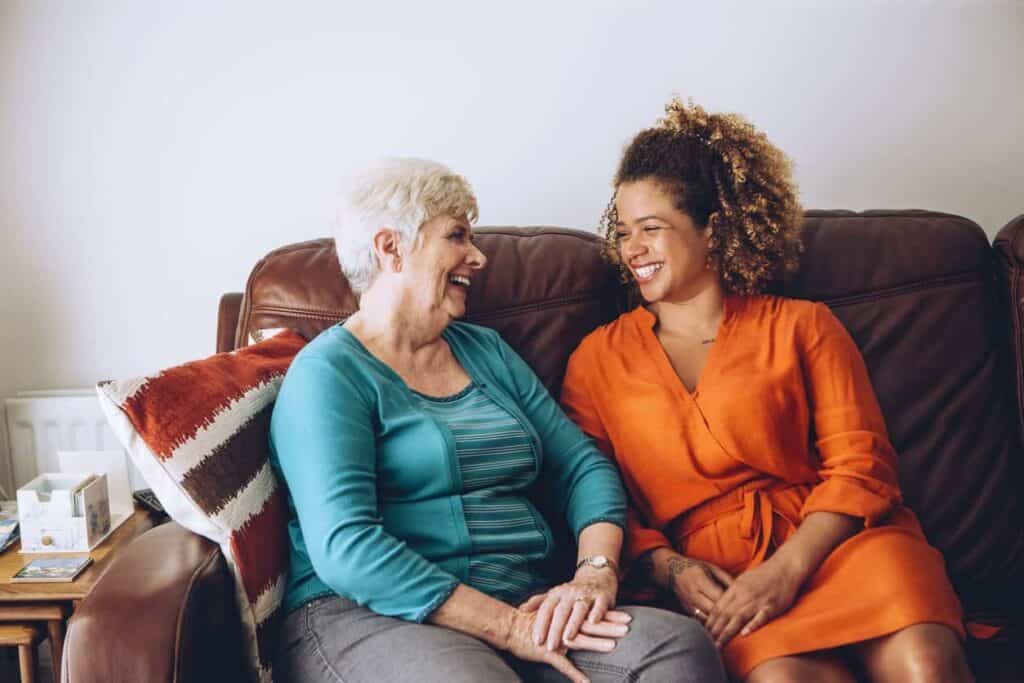
Being an informal caregiver is a remarkable and selfless role where individuals take on the responsibility of caring for their loved ones who can no longer care for themselves due to disability, illness, or aging.
Informal caregiving requires compassion, commitment, and dedication. However, it can also be physically, emotionally, and mentally demanding, leading to burnout and exhaustion in today’s fast-paced world where work, family, and personal commitment are taxing.
Often, it can be challenging to find a balance, and the caregiver’s health suffers in the long term.
Whether you’re new to informal caregiving, or you have been on this journey for a while, Amy’s Eden has put together this guide to help you navigate your journey with resilience and grace. You’ll find tips, resources, and strategies to help you thrive and overcome obstacles along the way.
An informal caregiver also called a “family caregiver” or a “primary caregiver” is an unpaid individual who cares for a family member, spouse, relative, or friend that can no longer provide their care may be due to disability, illness, or aging. Care is usually provided in the home environment of the care receiver or caregiver.
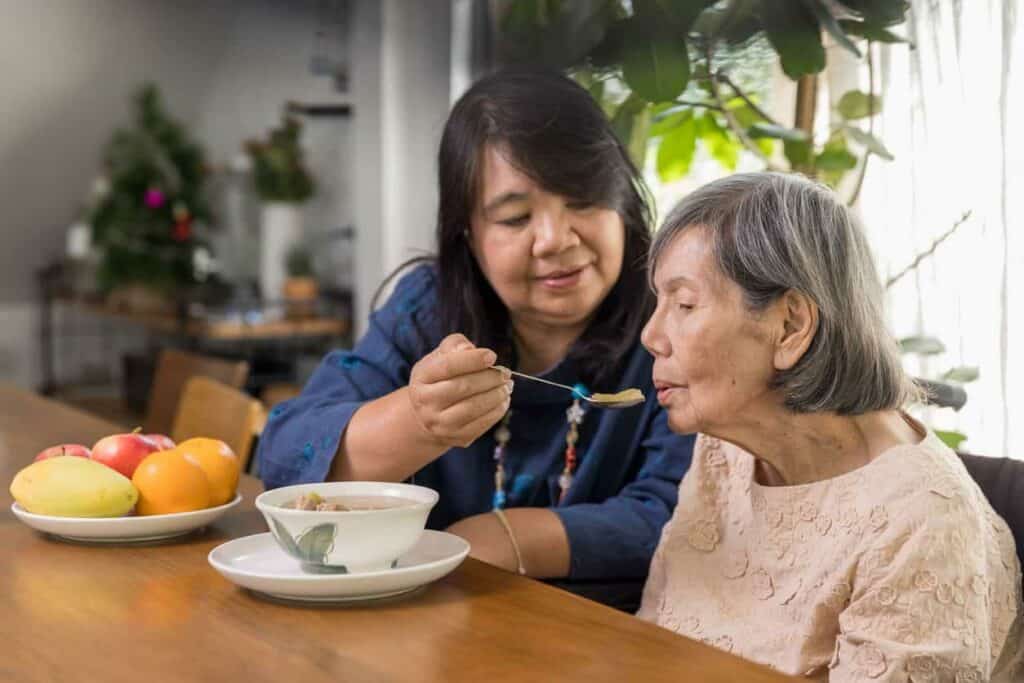
If you fall into this description, you’re not alone. Approximately 38.9 million caregivers or 16.6% of Americans provide care for adults aged 18+. If you’re an informal caregiver for older adults, which is the focus of this guide, you’re also not alone. It’ll surprise you to note that about 32.4 million Americans provided unpaid care to an older adult aged 50 and above as of 2015.
Informal caregivers are the backbone of the caregiving industry, sacrificing their time, and resources to ensure their loved ones are cared for and lead a better quality of life.
A 2014 study indicated that informal caregivers for older adults provided an average of 75 hours of assistance per month. In 2014 the economic value of unpaid caregivers was $470 billion exceeding the value of paid home care and total Medicare spending in the same year.
These statistics show that informal caregivers are doing one of the most selfless acts one human being can do for another. You’re amazing, you’re a superhero!
As we age and our health declines, we become more prone to illnesses and have decreased mobility. We might also experience a decline in our cognitive abilities. All of this over time make caring for ourselves challenging, so we need someone to step in and provide assistance.
It’s the same with our elderly parents or relatives. Caring for them when they can no longer care for themselves is one of the noblest things to do. It gives them a sense of belonging, gives them peace of mind, and helps them lead a high quality of life as they advance to their twilight years.
For caregivers, it can provide a sense of purpose and create a deeper bond with our elderly loved ones or relatives.

As an informal caregiver assisting an older adult, your responsibilities may include some or all of the following.
This list above is by no means exhaustive. You may also be responsible for other duties not listed here. Juggling caregiving responsibilities and personal responsibilities like work and family can be challenging, and in some cases, caregivers have to seek some form of external help.
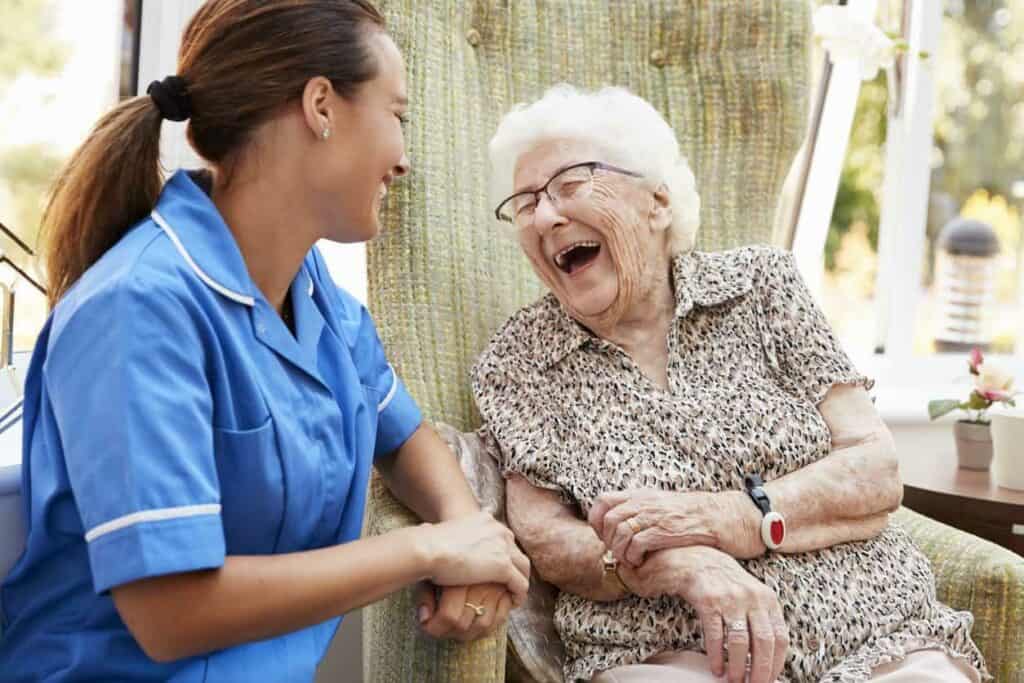
A formal caregiver is a paid caregiver. In other words, they are given monetary compensation for the care they provide. Most family caregivers transition to formal caregiving when their caregiving responsibilities are overwhelming, when the care needs for their loved one goes beyond their expertise, or when they are not able to provide care for some reason, say distance.
Paid caregivers are trained and equipped to provide long-term care for older adults. They work in a variety of settings including:
Depending on your loved one’s need, there are different types of paid caregivers you will need.
If you’re looking for a caregiver for your loved one, you can reach out to us to find the perfect caregiver who is trained and equipped to provide exceptional care.
Being an informal caregiver, regardless of how rewarding it can be, comes with its share of challenges. While each caregiving journey is unique, the emotions experienced are often universal. Feelings of guilt, stress, isolation, and exhaustion can become all too familiar.\
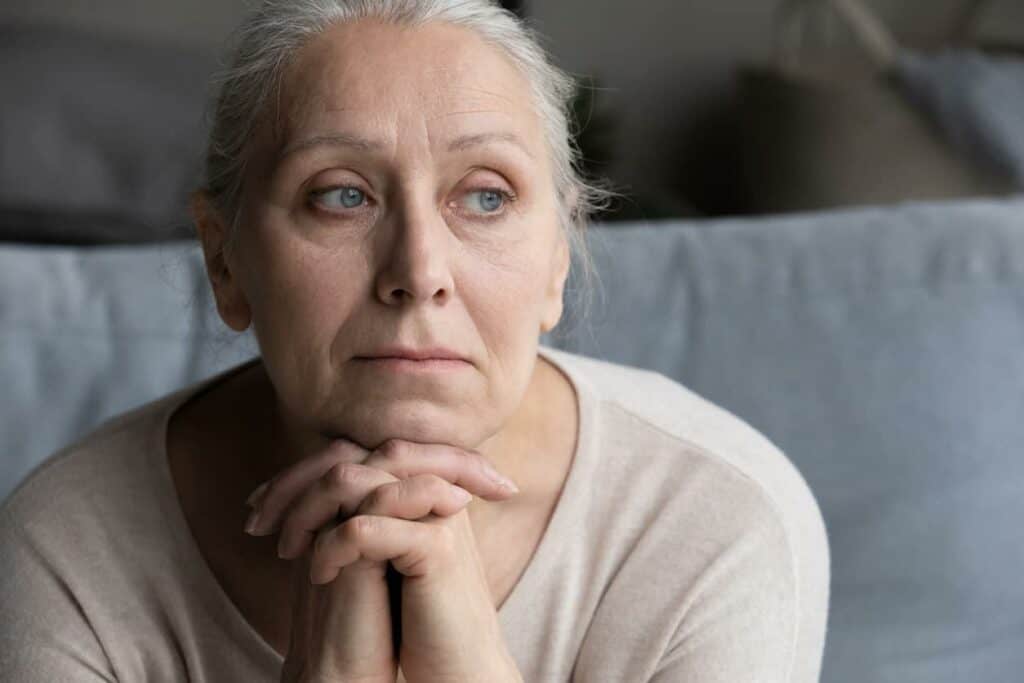
Below are some of the common challenges family caregivers of older adults face.
On the caregiver’s list, there are always a thousand and one things to do. If you’re not trying to provide care for your loved one, you’re trying to meet up with other responsibilities that demand your attention like family, work, or business. Trying to create this balance and manage time effectively can be overwhelming, and caregivers often find themselves stretched thing leading to a sense of being overwhelmed.
A 2023 study indicated that almost half of the caregivers involved in the study who provide care for at least 40 hours per week were diagnosed to have depressive symptoms.
Providing care for a loved one can trigger a range of complex emotions. You may experience feelings of
Witnessing your loved one’s condition decline, feeling you’re not doing your best, or that you’re ignoring your other responsibilities can lead to increased stress, depression, and anxiety.
If you’re having intense emotions like continuous sadness and helplessness, you may be experiencing caregiver depression, or they can increase your risk. Learn about the 10 signs of caregiver depression and how to prevent it.
It’s estimated that 17-35% of family caregivers view their health as fair or poor, and 11% report that caregiving has caused their physical health to deteriorate.
Depending on your loved one’s condition, caregiving tasks may include physical assistance such as lifting and bathing. This can impact your physical health and lead to injuries, chronic pain, or sleep deprivation if self-care is not prioritized.
Four in ten informal caregivers (38%) experience moderate to high financial strain from caregiving. 45% have had at least one major financial impact such as:
The reason for the above is not far-fetched. Some family caregivers may have to reduce or quit their employment resulting in loss of income, and a potential strain on their financial ability. Others may have to actively support the financial aspect of their loved one’s care such as medical treatment, medications, and specialized equipment.
“Caregiving is like on-the-job training, but nobody has the manual”.
This is so true for most family caregivers. Research reports that 85-95% of caregivers are untrained and lack the needed caregiving knowledge and skills.
Most family caregivers never planned to be caregivers; they just found themselves in that role unexpectedly. Hence, many know nothing about their loved one’s condition, and overall health requirements. This lack of information can make caregiving more challenging, leading to feelings of uncertainty and inadequacy.
Your caregiving responsibilities may limit your social interaction and activities. The constant demands of caregiving can leave little to no time to pursue your interest or maintain relationships. This can lead to feelings of loneliness or lack of emotional support.
Constantly attending to the needs of another person without taking time to care for oneself can lead to caregiver burnout, which is a state of intense physical, emotional, and mental exhaustion. Caregiver burnout hinders your ability to provide effective care and manage your life outside of caregiving.
If you have been a family caregiver for some time now, you may relate to one or more of the above challenges. The first step is knowing that these challenges can occur, or identifying that you’re already experiencing them. The next step is to learn coping strategies to help you thrive in your role.
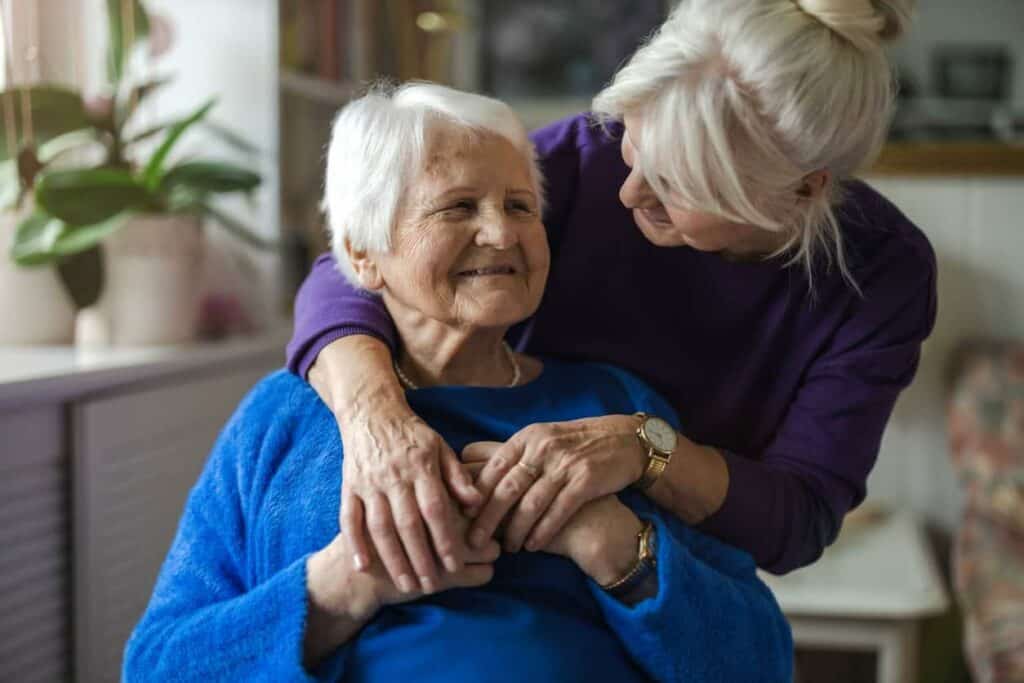
If you’re experiencing caregiving challenges right now, understand that you’re not alone. Numerous caregivers have experienced these challenges and used the strategies we’ll be discussing below to reduce or eliminate them.
You can’t do everything by yourself, so, it’s okay to ask for help and learn to accept it when it’s being offered. Get other family members or relatives involved in the care, and delegate responsibilities accordingly.
You must prioritize self-care if you don’t want to end up with caregiver burnout or depression. Don’t feel guilty when you need to take out time for yourself. You’re not a superhuman, you also need downtime to recharge your caregiving batteries. This can in turn boost your mental health.
During your time out you can engage in your favorite hobby, take a walk or do whatever makes you feel good and happy. This can include:
Time management is crucial as you have to balance caregiving and life outside caregiving. If you’re finding it difficult to manage your time, the following tips can help.
Negative emotions such as feelings of guilt, anger, jealousy, sadness, and helplessness may come up in your caregiving role. However, you must identify the root cause of these emotions and find ways to address them.
Let’s take a look at how to address some of them.

How do you take care of others when you’re not in the best physical health? It’s necessary to adopt healthy lifestyle choice that keeps you in optimal health. Some of these include:
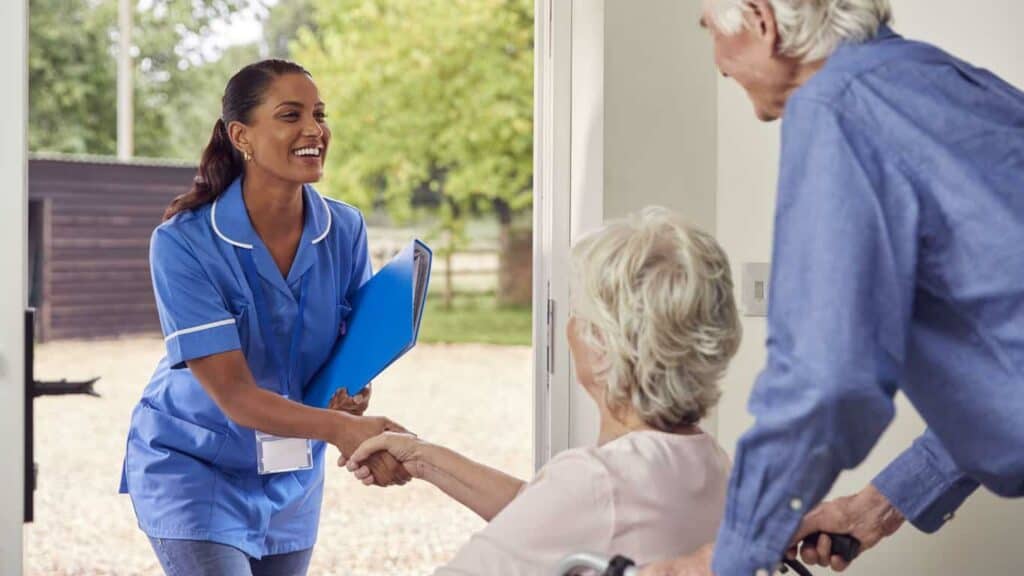
Respite care is temporary care for your loved one while you take that much need break to relax and unwind. Respite care can be provided in a home environment, an adult day care center, a nursing home or assisted home, or a center dedicated to respite.
You can hire an independent respite caregiver or work with a caregiving agency that will provide a caregiver to fill your shoes while you’re away.
At Amy’s Eden, we have professional respite caregivers who have been trained and vetted. Our respite caregiver takes the burden of worrying about your loved one while you’re away. We care for them, just as you would.
Caregiver support groups can offer encouragement and validation and provide you with real-life strategies to cope with difficult situations. Think of them as a close-knitted group of individuals on the same journey as you. You can talk about your challenges and negative emotions you might be feeling, and get answers or strategies to cope. You may also find opportunities for caregiver training or program.
If you’re constrained with time, and can’t attend a physical support group or community, online groups on social media such as Facebook or Twitter, or other online forums can be beneficial.

Numerous not-for-profit organizations and government agencies have resources geared toward supporting informal caregivers and their families.
Below are some of them.
In addition to these resources, a quick search on Google plus your loved one’s city or state can bring up more caregiving resources that are beneficial to you and your loved one locally (e.g. Caregiver Resources Nevada).
Informal caregivers and real-life superheroes; and this is why at Amy’s Eden, we dedicate enough time to create guides like this to help them thrive in their caregiving role.
While providing care for your loved one, ensure you prioritize self-care, as you need downtime to engage in activities that bring joy to you. Remember, you don’t need to feel guilty about taking a break, as you can easily employ the services of a respite care caregiver to provide adequate care while you’re finding relief.
Amy’s Eden respite caregivers are equipped to provide high-quality care for your loved one in their own home. Feel free to contact us today and learn more about how we can help.
Get care >

As seasons change in Reno and Carson City, or when mobility becomes a challenge, finding engaging indoor activities for seniors can feel like a difficult
Family Survey Please share your honest feedback to help us improve the care and safety of your loved one.
Professional Senior In-Home Care in Carson City Keep your loved one in the comfort of their cherished home. Amy’s Eden delivers exceptional senior care services
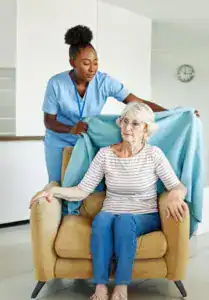
The Best Home Care in Reno, NV The comfort of your home, the quality of Eden. We provide compassionate, professional in-home care services for seniors
